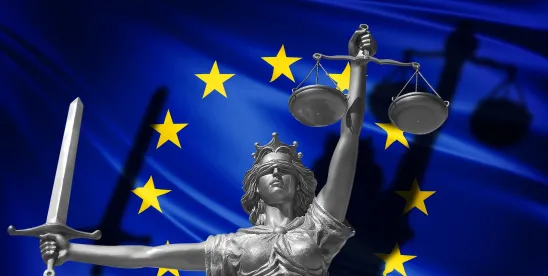In a spectacular turn, on September 3, 2024, the Court of Justice (CJEU), constituted as the grand chamber, overturned the ruling of the General Court (GC) and annulled the decision made by the Commission to accept requests from national competition authorities to review the contemplated concentration under article 22 of the EU Merger Regulation.
In Depth
The CJEU conducted the same four interpretations undertook by the GC, while reaching an opposite conclusion in each of them. The historical and contextual interpretations do not support the conclusion that Article 22 EUMR confers on the Commission the competence to examine a concentration which does not meet the turnover threshold, irrespective of the merger rules of the Member State making the referral request.
From the teleological interpretation, the CJEU stressed that the EUMR introduced the “one-stop-shop” principle to take into account the need for legal certainty for the companies concerned. While the historical interpretation of the EUMR reveals, according to the CJEU, that the referral mechanism, known as the “Dutch clause” was to permit scrutiny of concentration that could distort competition locally, where the Member State in question did not have any national merger control system. Hence, that mechanism was not intended to be regarded as a ‘corrective mechanism’ to remedy deficiencies in the merger control system based principally on turnover thresholds.
In the end, the CJEU determined that the Commission’s interpretation of article 22 EUMR has the potential to disrupt the equilibrium between the different objectives of the merger regulation, especially by undermining the effectiveness, predictability and legal certainty that must be guaranteed to the parties to a concentration.
The CJEU also mentioned an alternative mechanism to review transactions that do not have a European dimension under the EUMR by referring to the Towercast jurisprudence and the possibility to enforce, for example, article 102 TFEU to these transactions.
Last, the CJEU also surprisingly suggested that if the Member States are concerned about some market developments involving innovative companies, they could revise downwards their own merger thresholds to capture transactions involving these companies.
I. What remains from the Article 22 Ashes?
This judgment is certainly one of these landmark rulings which will be remembered for a long time. The CJEU has given final judgment, i.e. the matter will not be referred back to the General Court.
As regards Illumina and Grail, the CJEU ordered the Commission to pay their legal costs (which however are typically capped way below the legal fees incurred). More importantly, since the “Commission could not rely on Article 22 of Regulation No 139/2004 to examine the concentration” of Illumina and Grail, the Commission also did not have the competence to prohibit the concentration and to impose a gun-jumping fine of EUR 432 million (which represented 10% of Illumina’s annual turnover and hence the maximum fine possible). Illumina will ask the Commission to reimburse this amount, plus interest; Illumina may also ask the Commission to pay damages for the fact that it had to unwind the transaction (though the FTC also prohibited it).
Three other transactions were caught by the EC under Article 22 EUMR where national merger filing in the EU were not triggered: the acquisition of Autotalks by Qualcomm which would combine two suppliers of V2X semiconductors in the EEA; the acquisition of Nasdaq Power by EEX, which would combine two providers of services facilitating the on-exchange trading and clearing of Nordic power contracts and Luxembourg’s Brasserie Nationale’s acquisition of Boissons Heintz, both based in Luxembourg.
Qualcomm and Nasdaq abandoned their transaction in light of the opposition from the Commission, but may reconsider their position (provided the deals can be revived); they may also consider asking damages from the Commission. Brasserie National appealed to the General Court the Commission’s decision to accept an Article 22 referral from Luxemburg – which is the only member state without a merger control system, making it a “Dutch clause” type of referral.
The Commission was quick in downplaying the importance of the judgment by pointing out that a few Member States had recently amended their merger control rules to call in certain transactions that fall outside the ordinary filing thresholds. And once member states have jurisdiction over a transaction, they can refer it to the Commission under Article 22 EUMR.
However, as so often, the devil lies in the detail: the Irish antitrust authority, for example, has publicly stated that it anticipates utilising its call-in power only to examine deals which have a specific impact on the Irish market and not to transactions which have the potential to impact competition on a wider (e.g., European-wide) scale – yet, one of the conditions for an Article 22 referral is that a transaction “affects trade between member states”; other member states require that a certain market share threshold is met – given that Grail had no turnover in the EU, it also had no market share which would have triggered such national call-in rules. Hence, the reliance on broader national jurisdictional rules to keep Article 22 referrals seems to require further adjustments.
In fact, as mentioned above, the judgment refers to the possibility for member states to amend their national merger control rules to catch more transactions, as well as to the possibility to review transactions ex-post under the Towercast jurisprudence.
For the Commission, there is another reason as to why Article 22 is so important: under Article 14 of the Digital Markets Act (DMA), gatekeepers are required to inform the Commission of any intended acquisition involving digital services. The EC cannot review such deals under the DMA, but it can ask members states to refer them to the EC under Art. 22 EUMR, provided they have jurisdiction.
II. Background
Back in 2016, the European Commission (EC) had come to the view that the European Merger Control Regulation (EUMR) suffered from an enforcement gap and announced that it was considering whether the current turnover-based thresholds under EU merger control law should be complemented by a value-based threshold. At the time, Commissioner Vestager stated that “it’s not always turnover that makes a company an attractive merger partner … In the pharmaceutical sector, it might be a new drug that’s been developed but not yet approved for sale. …”. From October 2016 until January 2017, the EC conducted a public consultation, but ultimately decided not to pursue the value-based threshold route to capture transactions that do not meet EU merger thresholds. Instead, the EC looked for alternative avenues to review such transactions and in 2017 the Commission publicly commented that Article 22 EUMR was adopted to make up for the total absence of merger control in a Member State and therefore was no longer fit for purpose in a time when almost all Member States have merger control based on the triggering of thresholds. The EC therefore discouraged national competition authorities (NCAs) from referring transactions which did not meet the national thresholds.
In September 2020, Commissioner Vestager announced that the EC would start accepting referrals from national competition authorities of mergers that are worthy of review at the EU level – whether or not those same authorities had the power to review the case themselves, and guidance would be published to lay out the rules of this new referral system. To that end, on March 26, 2021, the EC published Guidance on the application of the referral mechanism set out in the Article 22 of the EC Merger Regulation. This Guidance changed the EC’s policy regarding mergers falling below national thresholds by encouraging referrals of transactions below the national merger filing thresholds.
A. The First Referral Under the New Interpretation – Illumina/GRAIL
On September 21, 2020, Illumina, a US pharma company which specializes in genomic sequencing (a method of determining the DNA sequence of an organism or a cell) announced its intention to acquire sole control of GRAIL, a US biotechnology company which develops cancer screening tests based on genomic sequencing (hereafter referred to as “the Transaction”).
The Transaction did not trigger the thresholds of the EUMR or any other EU or EFTA Member State thresholds. Therefore, it was not notified to the EC nor any of the EU or EFTA Member States.
However, on December 7, 2020, the EC received a complaint concerning the Transaction and on review, came to the conclusion that the Transaction satisfies the conditions of Article 22 EUMR. On February 19, 2021, the EC sent a letter to the Member States concerned to inform them of the Transaction and to invite them to submit a referral request under Article 22. The French Competition Authority (FCA) made a referral request, followed by the Competition Authorities of Belgium, Greece, Iceland, the Netherlands, and Norway.
On March 11, 2021, the EC informed Illumina and GRAIL of the referral request, stating that the merger at issue could not be implemented whilst the standstill obligation laid down in the EUMR was applicable.
On April 19, 2021, the EC accepted the FCA’s referral request, along with the requests by the five aforementioned Member States (Contested Decisions) on the basis that the combined entity could restrict access to, or increase prices of, next-generation sequencers and reagents to the detriment of GRAIL’s rivals active in genomic cancer tests. In particular, the EC considered that referral of the transaction was appropriate because GRAIL’s competitive significance is not reflected in its turnover despite the fact that the deal is valued at $7.1 billion.
As a result, Illumina, supported by GRAIL, filed a suit before the General Court (GC), against the Contested Decisions. Illumina argued that the EC lacked the authority Article 22 EUMR to initiate an investigation into a transaction which does not satisfy the conditions enabling the Member State which has requested its referral to the EC to examine it under its national merger control rules.
On July 13, 2022, the GC upheld the EC’s decision to accept the referral request and dismissed Illumina’s action in its entirety. In its judgement, the GC confirmed the EC’s authority under Article 22 EUMR to examine a transaction that does not have a European dimension but is the subject of a referral request made by a Member State, even if the transaction is not notifiable in that Member State.
Following the GC’s judgment, Illumina filed for an Appeal.
B. Interim Measures and Gun Jumping Proceedings
In parallel to the case deciding on the correct application of Article 22 EUMR, on June 16 2021, Illumina and GRAIL notified the proposed acquisition to the EC, which opened an in-depth investigation on July 22, 2021 to assess the transaction.
However, on August 18, 2021, Illumina publicly announced that it had completed the acquisition of GRAIL during the Commission’s in-depth investigation in order to comply with its obligations under the purchase agreement, through which action allegedly breaching the EUMR. As a result, the EC opened a parallel gun-jumping investigation into Illumina’s alleged breach of the standstill obligation under the EUMR.
This led the EC to adopt binding interim measures in October 2021, to prevent the transaction from having potentially irreparable adverse effects on competition. This intervention was the first of its kind since the entry into force of the EUMR in 2004.
On September 6, 2022, the EC prohibited the Transaction. The EC based its Decision on input foreclosure concerns i.e. that the merger would stifle innovation and reduce choice in the emerging market for blood-based early cancer detection tests. According to the EC Illumina did not offer sufficient remedies to address these concerns. On July 12, 2023, the EC fined Illumina and GRAIL approximately EUR 432 million and EUR 1,000 respectively, for implementing their proposed merger before approval by the Commission.
The culmination of the EC’s scrutiny occurred in October 2023, when the EC ordered Illumina to divest GRAIL, effectively undoing the merger. The divestiture marked a significant enforcement action under Article 22 EUMR, as it is the first time the EC has ordered the reversal of an acquisition. On April 12, 2024, the EC approved Illumina’s plan to divest GRAIL. Finally, on June 24, 2024, Illumina announced the successful completion of GRAIL’s divestiture, through the distribution of 85.5% of GRAIL’s total stock to holders of Illumina common stock. In addition, Illumina shareholders received one share of GRAIL common stock for every six shares of Illumina stock held as of June 13, 2024. GRAIL is now a public and independent company, as independent legally and financially as it was from Illumina before the acquisition.
III. The Views of the General Court and the Advocate General’s Opinion
On July 13, 2022, the General Court fully supported the approach of the EC in relation to Article 22 EUMR. It ruled that the EC can review mergers even if they do not meet national thresholds, and affirmed that a deal is “made known” to a Member State only when it receives sufficient material for it to be able to assess whether the merger satisfies conditions to qualify for a referral, and not just through publicly available information. In addition, the GC acknowledged the EC’s delay in sending the Invitation Letter to Member States but stated that that did not have an impact on the parties’ ability to defend themselves effectively. Lastly, the GC confirmed that the EC did not violate legal certainty or legitimate expectations. For more details on the GC’s judgment, see our previous client alert.
By contrast, in an already twisted series of events, on March 21, 2024, the Advocate General (AG) of the European Court of Justice (ECJ) delivered his opinion concluding that the GC erred in its interpretation and application of Article 22 EUMR.
The AG considered that the EC does not have the jurisdiction to examine nor prohibit mergers which are not on referral notifiable under national law. The main question to be answered by the AG was whether Article 22 EUMR enables the Commission to review a merger referred to it by a Member State’s authorities, where the latter lack any competence to review it, since the merger in question falls below the thresholds set out in their national legislation on merger control.
According to the AG, interpreting Article 22 EUMR demands meticulous analysis encompassing its wording, origin, context, and purpose alongside fundamental EU legal principles and the logic of merger control. The AG argued that Article 22 EUMR was originally designed as a complementary tool for countries without merger control regimes, and its use should not be extended to cases that fall outside the national merger control systems of Member States. The AG emphasized that neither the legislative history nor the textual interpretation of Article 22 supports the broad interpretation adopted by the GC.
The AG expressed concern that a broad interpretation of Article 22 would result in less legal certainty and stressed that merger threshold reforms should be left to the EU legislature rather than the Commission. So-called killer-acquisition could be reviewed a posteriori under Article 102 TFEU, and member states could adopt value-based thresholds as Austria and Germany did.
Thus, in the AG’s view, Article 22 EUMR does not empower the EC to adopt decisions such as those challenged by the applicants in the present proceedings. Therefore, those decisions should be annulled.







 />i
/>i
